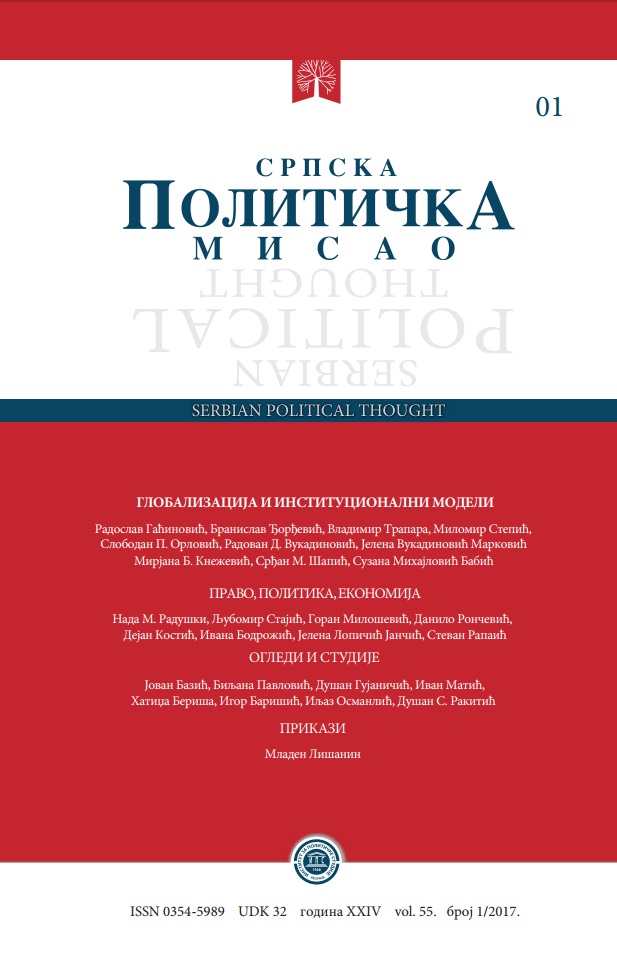Правни поглед на узајамне санкције православне цркве и државних власти непосредно након покушаја ратификације конкордата Краљевине Југославије и Свете Столице у лето 1937. године
A Legal Perspective on Sanctions Exchanged between the Orthodox Church and the Public Authorities in the Aftermath of the Attempted Ratification of the Concordat Between the Kingdom of Yugoslavia and the Holy See in the Summer of 1937
Author(s): Dušan S. RakitićSubject(s): International Law, Politics and religion, Sociology of Religion
Published by: Институт за политичке студије
Keywords: concordat; religious freedom; freedom of speech; Serbian Orthodox Church; Kingdom of Yugoslavia
Summary/Abstract: The paper contains an analysis of sanctions implemented in the course of the confrontation between the public authorities and the Serbian Orthodox Church in the Kingdom of Yugoslavia in the immediate aftermath of the attempted ratification of the concordat between the Kingdom of Yugoslavia and the Holy See in the summer of 1937. The aim of the paper is to deepen the understanding of the model of cooperative separation of church and state, which had been introduced in the Kingdom of Yugoslavia between 1929 and 1933 and was therefore in its formative phase in the period subject to analysis. Analysis of the period of the most intense confrontation between state authorities and the Serbian Orthodox Church shows, first, that church autonomy is limited not only by virtue of law, but also by the nature of the church as spiritual organization; the Serbian Orthodox Church obviously did not consider the state of confrontation as normal or tolerable over a longer period of time. Secondly, public authorities in a secular representative democracy cannot afford an open and intense confrontation with a church or religious organization whose believers form the majority of citizens. Thirdly, the model of cooperative separation requires careful delineation between the realms of religious freedom and freedom of conscience on one hand and party politics on the other. Legislation may serve only as one of the instruments for such delineation. Finally, it is surprising to see that even lower level public authorities enforced sanctions against the Serbian Orthodox Church, its bishops and clerics, in an orderly manner, despite the influence and authority enjoyed by that church in the society which had left the model of state church less than a decade before the subject events.
Journal: Српска политичка мисао
- Issue Year: 2017
- Issue No: 1
- Page Range: 369-382
- Page Count: 14
- Language: Serbian

